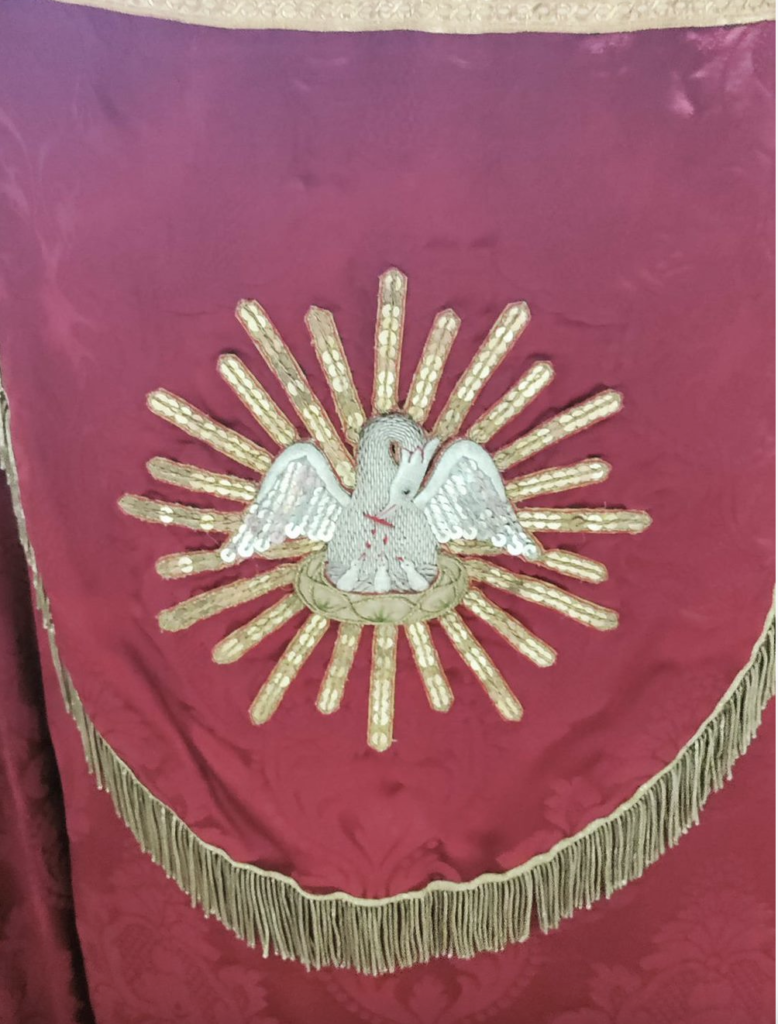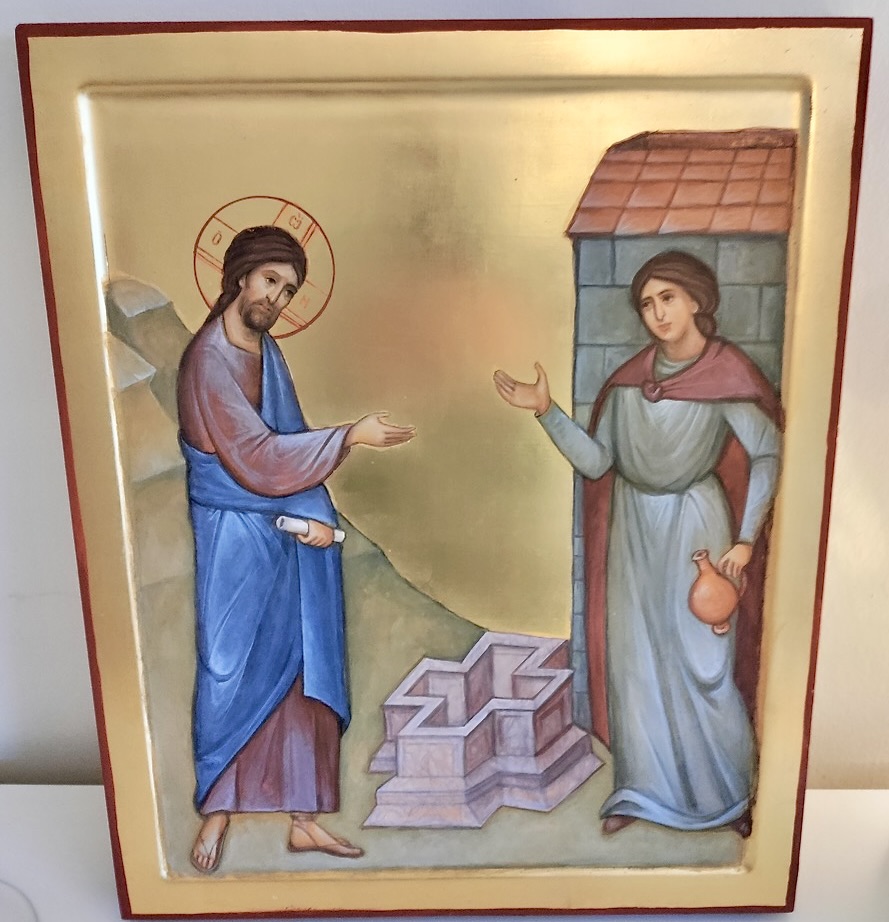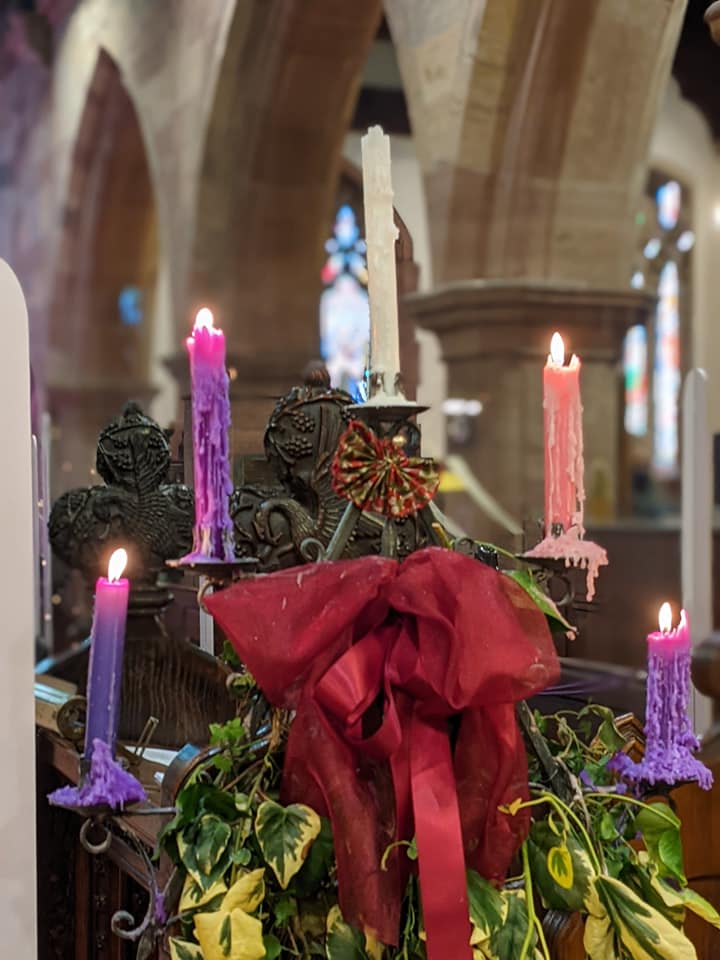Is it Stir Up Sunday… or the Feast of Christ the King?
In the Book of Common Prayer – the prayer book going back to the year 1662 that we used to use Sunday by Sunday with its traditional and very beautiful language – the collect for the Sunday before Advent is as follows: Stir up, we beseech thee, O Lord, the wills of thy faithful people; that they, plenteously bringing forth the fruit of good works, may of thee be plenteously rewarded; through Jesus Christ our Lord. Amen.
It was also the weekend that according to tradition people made their Christmas puddings and because of all the mixing and stirring that involved and the opening words of the Collect it became known as Stir Up Sunday.
Now it is more common to celebrate the Feast of Christ the King on the last Sunday before Advent. This feast day was instituted by Pope Pius XI in 1925. That can surprise people because in some ways the festival seems to belong to a much older time – a time when church and state were interchangeable and bishops and princes were equally powerful. In medieval paintings Jesus is often depicted as a full grown man perched on the Blessed Mary’s knee. These images date from a time when those in power wanted to impress upon the masses the divine right of kings – the peasants had to be kept in their place and what stronger message could there be especially for those who couldn’t read than to paint Jesus as a powerful monarch even when he is pictured sitting on his mother’s knee.
In later years –from the time we call the Enlightenment – our view of the world changed. We put our faith in human endeavour, it was understood that God had created us with minds and brains to understand things and work things out and this iwas reflected in the way Jesus was painted. Jesus when pictured with his mother begins to look like a real baby.
So it’s strange that at the beginning of the 20th century when monarchies were collapsing all over Europe, when ordinary working people were beginning to believe that they mattered as much as kings and queens – when people began to see their individual journeys as Christians as being as important as that of their leaders the Pope instituted this festival.
Well you might cynically believe it was to shore up faith in Bishops and Princes, or Popes for that matter, but this was a time when fascism and totalitarianism was on the rise with dictatorships across Europe – Hitler in Germany, Mussolini in Italy, Franco in Spain and even here in the UK there were some people turning towards Oswald Mosely and his Blackshirt movement.
So it was at this very time Pope Pius instituted this new celebration. To emphasise if necessary that we do not put our trust in worldly dictators but in Christ.
Very sadly there are in our own times echoes of the political situation faced by Pope Pius Xi. Here in the UK those working to prevent people being enticed into extremist groups have seen a rise in those being attracted by Far Right White Supremacist ideology often accessed through social media. Across Europe Far Right wing politicians are winning support and in some cases such as Italy and Hungary winning elections.
We now live in times that are often described as Post Modern where people have lost trust in the traditional figures of authority, when people think they can make their own minds up about anything without recourse to anything other than what “feels” right to them. At times like this people sometimes, as I believe happened in the 1930s, look to a simplistic idea which will make everything ordered again –but to seek a simplistic idea that we can turn back the clock to an age which never actually existed anyway is dangerous. And equally dangerous is only to use how one feels to make a decision. We are Christians. Christ has to be at our centre and we must look to him to guide our decisions and that includes not just our private morality but how we play our part in our communities and in the public square. We are facing very difficult times in our community in the coming months and years. There is a financial crisis which will impact on us and on those living around us. There is a need for churches to step up and do what we can to help each other and to speak up for what is right – whether that be helping those in need, or welcoming the stranger. Recall the words in Jesus’ parable of the sheep and the goats. When the Son of Man comes in glory he will say to those who are called to sit with him I was hungry and you gave me food, I was thirsty and you gave me something to drink, I was a stranger and you welcomed me, I was naked and you gave me clothing, I was sick and you took care of me, I was in prison and you visited me.
We know that Christ’s kingdom will only be fully realised when Christ returns to usher in his kingdom of truth and life, a kingdom of holiness and grace, a kingdom of justice love and peace. But that does not mean that we have no part to play in beginning to build that kingdom here and now. The injustice and inequalities that we see around us show us we need to act now.
Jesus’ kingdom is not of this world, but it is not outside this world entirely either. Jesus’ kingdom is already present within our world, through the redeeming power of Jesus’ death and resurrection. It is a kingdom which can be anticipated when we shape our lives in terms of that truth and life, that justice, love and peace which are the signs of the kingdom and of God’s presence.
So to go back to Stir Up Sunday and the words of the Collect
Stir up, we beseech thee, O Lord, the wills of thy faithful people; that they, plenteously bringing forth the fruit of good works.
Whilst we no longer use that Collect if we are using the modern prayer book we find those self same words in the Post Communion Prayer.
That Collect was written hundreds of years before Pope Pius instituted the festival of Christ the King but those words are extremely relevant. Our prayer is that God will stir us up, that we won’t sit passively or think I can’t do anything about the world around me, or it’s not up to me but to somebody else – but rather we will become active and go into the world, playing our part in making it a better place and bringing forth the fruit of good works.
This Feast is a time to recommit ourselves to keep the values of our faith alive, making Christ the centre of our lives whichever prayer book we are using. Rev’d Canon Andrea Jones, Rector: StDeiniol’s Church





